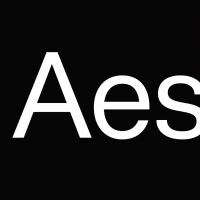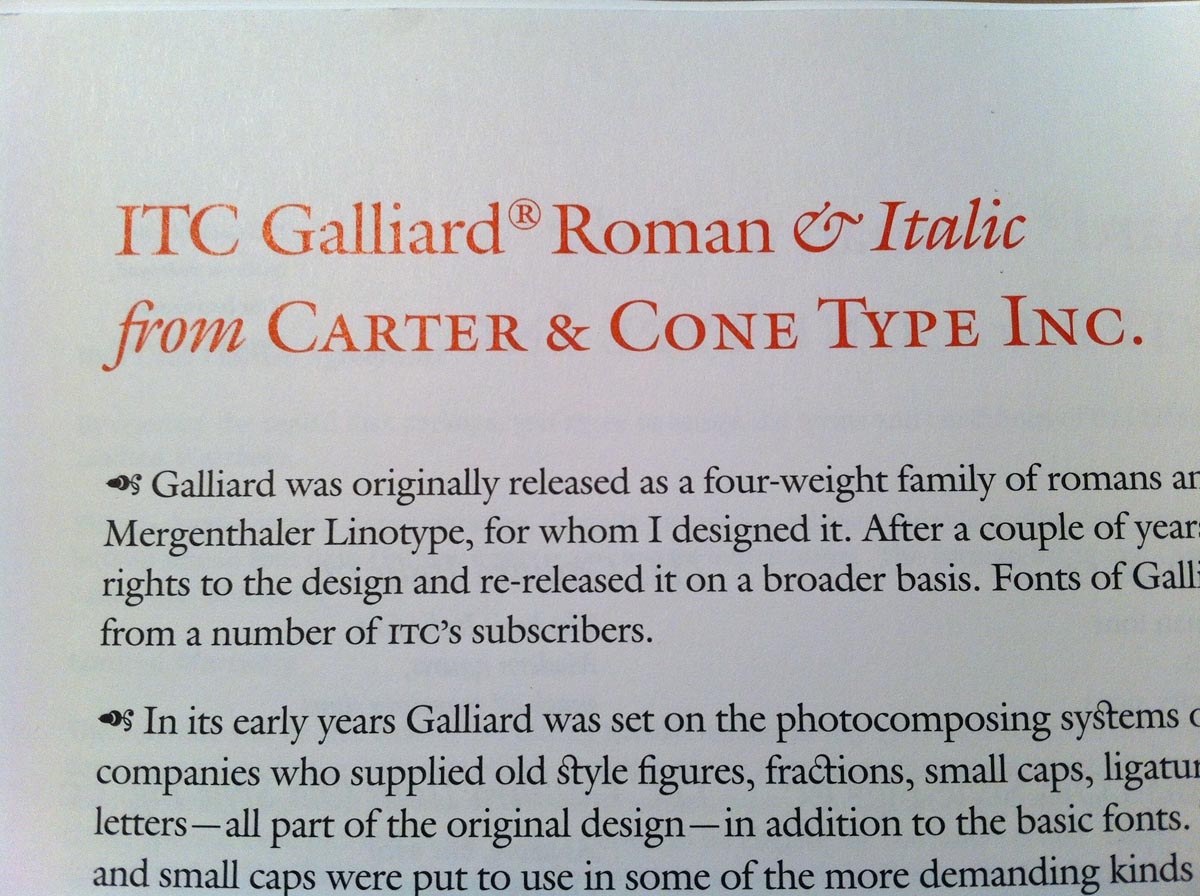Small Caps Practice

Michael Jarboe
Posts: 265
Is there any precedence when typesetting small caps to use standard size non-small caps specific punctuation, at least with period, colon, and quotation marks? As a user is it best to have the option of basic punctuation designed/scaled to small caps proportions? I'm curious if there's any best practice or user scenarios where either/or is preferable?
Tagged:
0
Comments
-
It seems sensible to me to have small-cap versions of the punctuation that goes full height (!, ?, (), [], {}, quotation marks), but to have it triggered not by the regular small caps feature but rather by the caps-to-small-caps feature.
A small-caps period seems like a goofy idea to me. After all, the point of drawing dedicated small caps is that they aren't just scaled down versions of the caps.10 -
but to have it triggered not by the regular small caps feature but rather by the caps-to-small-caps feature.
That is also the way I do it. Otherwise, when you have mixed case, you may get a smcp next to a cap.0 -
Right. The main use of small caps is in mixed case setting, with minuscules and majuscules, so changing punctuation is wrong.
For all small caps (c2sc), you have to decide whether there is any benefit in having the setting resemble a scaled-down all (full) caps setting, with, for instance, shrunken, lowered quote marks. I usually leave them alone; after all, the comma extends beyond the baseline, so default quotes balance that nicely in all-small-caps.
Small versions of the question and exclamation marks, and ampersand, may seem obvious, but are a bit of a luxury as they are so rarely required in all-small-cap settings, so may be omitted. But perhaps I am mistaken on this and will shortly be corrected by Kent Lew!2 -
LOL ;-)
Well, I don’t know that I would characterize them as a luxury and “so may be omitted.” These SC punctuation are certainly not frequently needed, but are also not rare. I don’t have time right now to track down some real-world examples. Maybe later today.
As with many things in type, I think such possibilities are design-dependent (and perhaps destination-dependent) and consideration should be given each time and consciously decided, one way or the other.
As a side note, although the standard approach for FB (and other foundries, I believe) is to include any ampersand.sc substitution only in {c2sc} for All Small Caps, for Matthew Carter fonts I always include it in {smcp} at his request. He admits that this is driven largely by his preference for how he likes this in the setting of his company’s name. ;-)
10 -
I'm wondering how the All Small Caps feature works in the graphic editors, but most of them only provide the Small Caps, and I don't have InDesign to test it. As I understand it, All Small Caps uses both smcp and c2sc features?Kent Lew said:As a side note, although the standard approach for FB (and other foundries, I believe) is to include any ampersand.sc substitution only in {c2sc} for All Small Caps
0 -
I think so, although it *could* be doing a cap-to-lowercase case transformation via formatting first, instead of the dual features. I only vaguely remember those discussions from 20 years ago, which certainly involved me and Eric Menninga, and I probably ran it by other folks in the Adobe type team.
Doing something like this is good. Otherwise if a user selects mixed-case text and applies c2sc (caps to small caps) only, they get initial small caps followed by lower-case text, which is almost certainly undesirable.
Arguably the layout c2sc feature should have been defined differently in the first place, but we were just trying to come up with the best app implementation given what was there.0 -
I'm unable to recall where I learned it, but my understanding is that c2sc feature is for the purpose of catching the characters not covered in smcp when applying All Small Caps. That's how I've always treated it anyway. c2sc doesn't make much sense by itself.2
-
@Thomas Phinney, @Mark Simonson
Agree, I never seen (except of TRADEMARK names) someone use only Capitals to Small Caps in a regular text. So I was surprised that OpenType specification didn't provide a combined feature (something like ascp) that some graphics and text editors provide.0 -
There is one case where c2sc by itself makes sense, which I had forgotten about in my comment above: When the input text is all caps, such as an acronym or caps used for emphasis within a text. Without c2sc, you would have to convert the text to lowercase first. All Small Caps works just as well in such cases, FWIW.1
-
@Mark Simonson The face I'm working on can make use of c2sc by itself. It follows blackletter conventions in the "Old English" vein, and while the cap and ascender line is 650, the smallcaps reach 600 and are much narrower and simpler, matching the default numerals. In the context of the default caps they serve as smallcaps, but they can also serve as perfectly practical normal caps if that is the preference.I begin to realize, though, that there may be no application that lets the user choose c2sc alone as a feature, and I ought to mirror it in a style set if I want it to be an option.1
-
I don't know about other operating systems, but on macOS, there are apps that let you choose c2sc alone, such as Affinity Designer and apps that use the system Typography panel (TextEdit, Pages, etc.):


Not Adobe apps, though.2 -
— In-app support you mentioned is very limited.K Pease said:I begin to realize, though, that there may be no application that lets the user choose c2sc alone as a feature, and I ought to mirror it in a style set if I want it to be an option.
— Some customers don't even know what a c2sc feature is, and some — what a Stylistic Set is.
I think, that's why some foundries provide additional font styles like a "Familyname Small Caps" and "Familyname All Small Caps" etc, where these versions use the default glyphs, without features.
0
Categories
- All Categories
- 46 Introductions
- 3.9K Typeface Design
- 489 Type Design Critiques
- 567 Type Design Software
- 1.1K Type Design Technique & Theory
- 662 Type Business
- 867 Font Technology
- 29 Punchcutting
- 523 Typography
- 120 Type Education
- 325 Type History
- 78 Type Resources
- 112 Lettering and Calligraphy
- 33 Lettering Critiques
- 79 Lettering Technique & Theory
- 563 Announcements
- 94 Events
- 116 Job Postings
- 170 Type Releases
- 182 Miscellaneous News
- 277 About TypeDrawers
- 55 TypeDrawers Announcements
- 120 Suggestions and Bug Reports







